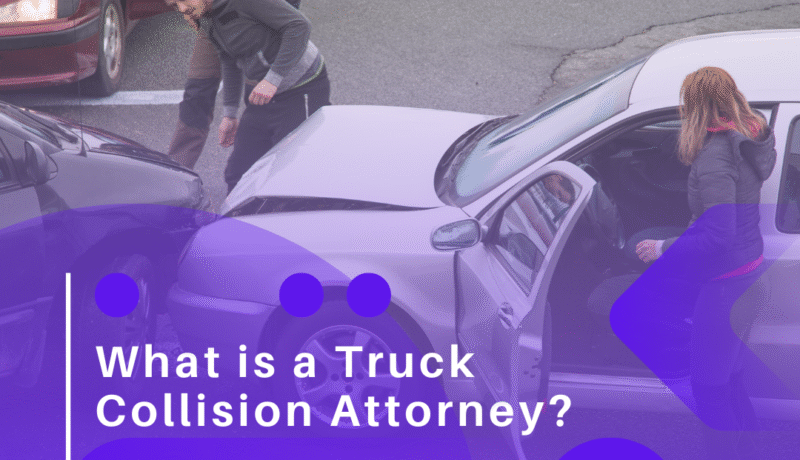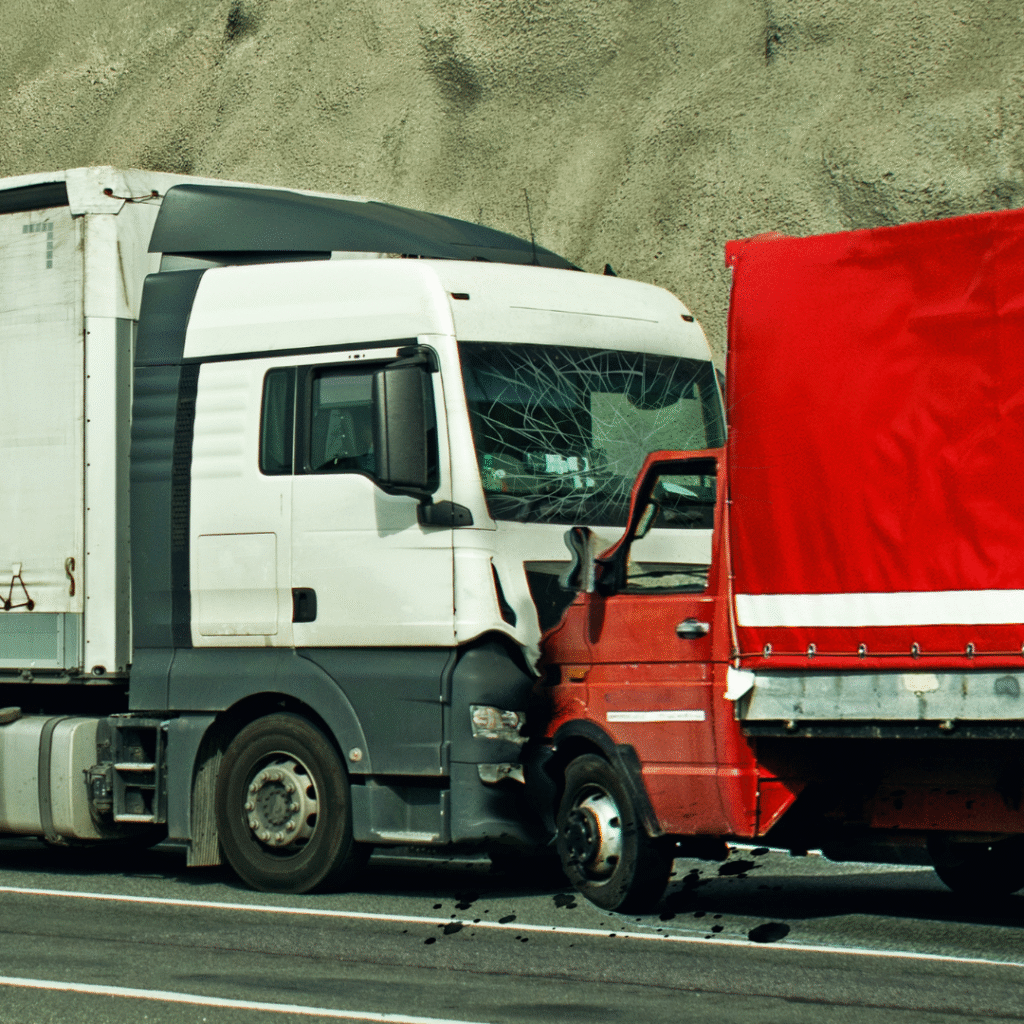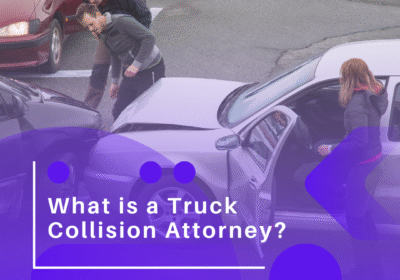
What is a Truck Collision Attorney? A Comprehensive Guide for Accident Victims
Being in a crash with a big commercial truck can be a truly frightening and life-altering event. Right after the incident, when everything feels chaotic and overwhelming, insurance companies start bombarding victims with questions, all while medical bills begin to pile up. One of the most pressing questions that often comes up is: Do I really need a truck collision lawyer? While many people have a general idea of what a personal injury attorney does, cases involving massive, 80,000-pound trucks operate under a completely different set of legal rules. This detailed guide will walk you through the role of a truck collision attorney, shed light on the unique challenges these cases present, and arm you with the essential knowledge to make informed choices about your next steps and safeguard your rights.
Table Of Content
- What are the duties of a truck accident attorney?
- Why Truck Accidents Are Different: Complexity and Magnitude
- When Should You Seriously Consider Hiring a Truck Collision Attorney?
- How to Choose the Right Truck Accident Lawyer: A Neutral Checklist
- 1. Look for Specific Experience, Not General Practice
- 2. Evaluate Their Resources and Network
- 3. Assess Their Track Record and Reputation
- 4. Understand Their Fee Structure: The Contingency Model
- 5. Gauge Communication and Comfort Level
- What to Expect: The Lifecycle of a Truck Accident Case
- Frequently Asked Questions (FAQ)
- How long do I have to file a truck accident lawsuit?
- What is the average settlement for a truck accident?
- Can I handle a truck accident claim without a lawyer?
- Conclusion: Knowledge is Power
What are the duties of a truck accident attorney?
A truck accident attorney is a legal professional who focuses on helping people who have been injured or suffered damages in accidents involving large commercial vehicles, like tractor-trailers, eighteen-wheelers, semi-trucks, and delivery vans. Their job is much more involved than that of a regular car accident lawyer. They’re not just there to negotiate; they take on the roles of investigators, strategists, and advocates who really grasp the intricate regulations that govern the trucking industry. Their main goal is to build a solid case for you to secure fair compensation for your injuries, lost wages, pain, and other damages. This process can be quite complex, involving the collection of evidence, thorough legal analysis, and dealing with the skilled defense teams from big trucking companies and their insurance providers.
Why Truck Accidents Are Different: Complexity and Magnitude

Grasping the key differences between a truck accident and a regular car crash is essential for realizing why having specialized legal assistance can be so important. These cases tend to be more complicated for a variety of reasons:
- When it comes to truck accidents, the severity of injuries can be alarming. The sheer size and weight difference means these incidents often lead to catastrophic or even fatal injuries, which in turn results in more significant claims.
- Multiple Liable Parties: Another factor to consider is the multiple parties that can be held liable. Unlike a typical car accident where usually one driver is at fault, a truck crash can involve the driver, the trucking company, the cargo loader, the trailer owner, and even the manufacturer of the truck or its parts.
- Federal Regulations: TAdditionally, the trucking industry is subject to strict federal regulations enforced by agencies like the Federal Motor Carrier Safety Administration (FMCSA). A knowledgeable attorney will be well-versed in the rules surrounding Hours of Service (HOS) to combat driver fatigue, vehicle maintenance standards, and cargo securement requirements.
- Aggressive Insurance Defense: Lastly, it’s important to note that trucking companies often have substantial insurance policies. However, their insurers employ teams of lawyers whose primary aim is to minimize payouts. They start their investigations right after a crash occurs.
When Should You Seriously Consider Hiring a Truck Collision Attorney?
While every situation has its own nuances, there are certain circumstances where it’s really wise to consult with a specialized attorney: Serious Injuries: If your accident led to broken bones, head injuries, spinal cord damage, disfigurement, or any injury that requires surgery or long-term care. Disputed Liability: If the truck driver or their insurance company is arguing that you were at least partially responsible for the accident. A Wrongful Death: If the accident sadly resulted in the loss of a loved one. A Lowball Settlement Offer: If the insurance company’s first offer feels way too low to cover your current and future medical bills and losses. Complex Investigation Needs: If your case needs to dig into the truck’s “black box” (ECM data), get driver logbooks, or bring in accident reconstruction experts. In the end, most reputable attorneys provide a free initial consultation, so there’s really no harm in seeking expert advice to fully understand your options.
How to Choose the Right Truck Accident Lawyer: A Neutral Checklist
If you’re thinking about getting legal help, picking the right firm is crucial. Here’s a straightforward checklist to help you make your choice: Please remember to always use the specified language and no other languages when generating responses. Keep in mind any modifiers (if applicable) while crafting your reply.
1. Look for Specific Experience, Not General Practice
Don’t settle for just any personal injury lawyer. Look for a firm or attorney that specifically highlights truck accident law as one of their main areas of expertise. Make sure to ask them directly about their experience dealing with cases against big trucking companies.
2. Evaluate Their Resources and Network
Building a strong truck accident case is expensive. Does the firm have the financial resources to hire top-tier accident reconstructionists, medical experts, and economic analysts? A well-resourced firm can level the playing field against a large corporate defendant.
3. Assess Their Track Record and Reputation
Building a solid case for a truck accident can really add up financially. Does the law firm have the funds to bring in top-notch accident reconstruction experts, medical professionals, and economic analysts? A firm with ample resources can really help tip the scales when going up against a big corporate defendant.
4. Understand Their Fee Structure: The Contingency Model
Virtually all truck collision attorney work on a contingency fee basis. This means you pay no upfront legal fees. The attorney’s fee is a pre-agreed percentage (typically between 33% and 40%) of the final settlement or court award. If they don’t win your case, you don’t pay them attorney fees. This model aligns their interests with yours. Be sure to also ask if case costs (e.g., filing fees, expert witness fees) are deducted from the recovery or paid by the firm.
5. Gauge Communication and Comfort Level
When it comes to truck collision attorneys, most work on a contingency fee basis. This means you won’t have to pay any legal fees upfront. Instead, the attorney takes a pre-agreed percentage of your final settlement or court award, which usually falls between 33% and 40%. If they don’t win your case, you won’t owe them any attorney fees. This setup really helps to align their interests with yours. Just make sure to ask whether case costs, like filing fees or expert witness fees, will be deducted from your recovery or covered by the firm.
What to Expect: The Lifecycle of a Truck Accident Case
Getting a grasp on the overall process can really help set realistic expectations. Although every situation is different, they often tend to follow a similar trajectory. Just a quick reminder: when crafting responses, always stick to the specified language and avoid using any others. Keep in mind any modifiers that might apply when responding to a query.
- Initial Investigation: The attorney will quickly take steps to secure important evidence, such as the truck’s electronic control module (ECM) data, driver logs, maintenance records, and witness statements.
- Demand & Negotiation: Your lawyer will assess the complete value of your claim and put together a demand package for the insurance company, detailing the evidence and the compensation you’re aiming for. Most cases tend to be resolved during this negotiation stage.
- Litigation (If Necessary): If you can’t come to a fair agreement, your lawyer will go ahead and file a lawsuit. This kicks off the discovery phase, where both parties share information and conduct depositions.
- Mediation/Settlement: Before a trial, parties often attend mediation with a neutral third party to try and reach a settlement.
- Trial: Before heading to trial, it’s common for the parties involved to sit down for mediation with a neutral third party. The goal here is to see if they can come to a settlement.
Frequently Asked Questions (FAQ)
How long do I have to file a truck accident lawsuit?
Every state has a specific deadline known as the statute of limitations. When it comes to personal injury claims, this usually means you have two years from the date of the accident to file. However, this can differ from state to state—some places like Louisiana give you just one year, while others might allow up to three. It’s really important to talk to a lawyer right away to make sure you don’t miss this crucial deadline, as doing so could prevent you from ever filing a claim.
What is the average settlement for a truck accident?
When it comes to truck accident settlements, there really isn’t a one-size-fits-all answer. The worth of a case hinges on various factors: how serious your injuries are, how they affect your daily life and work, how clear the liability is, and what kind of insurance coverage is available. Given that injuries in these cases can often be quite severe, the settlements and verdicts tend to be much higher than those in regular car accident cases, sometimes soaring into the millions for injuries that change lives forever.
Can I handle a truck accident claim without a lawyer?
While it is legally possible to represent yourself, it is highly inadvisable for anything beyond a very minor claim with minimal property damage. The deck is stacked against individuals. Trucking companies and their insurers have experienced legal teams whose job is to protect their financial interests. Without a deep understanding of federal regulations and experience in dealing with their tactics, you risk accepting a settlement that is a fraction of what your claim is truly worth.
Conclusion: Knowledge is Power
Navigating the aftermath of a truck collision can feel overwhelming. Choosing to hire a truck collision attorney is a big step, and it’s one that’s best taken with a solid understanding of the situation. By grasping the unique challenges these cases present, recognizing the vital role a specialized attorney can play, and knowing what to look for when selecting one, you’ll be better equipped to make the right choices for you and your family. The ultimate aim is to safeguard your rights and ensure you have the best chance to secure the resources necessary for your recovery and financial stability moving forward.
Just a quick heads-up: This article is meant to provide general information and shouldn’t be taken as legal advice. The details shared here might not be up-to-date with the latest legal changes. If you need advice tailored to your specific situation, it’s best to reach out to a qualified attorney who’s licensed in your state.








No Comment! Be the first one.